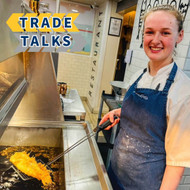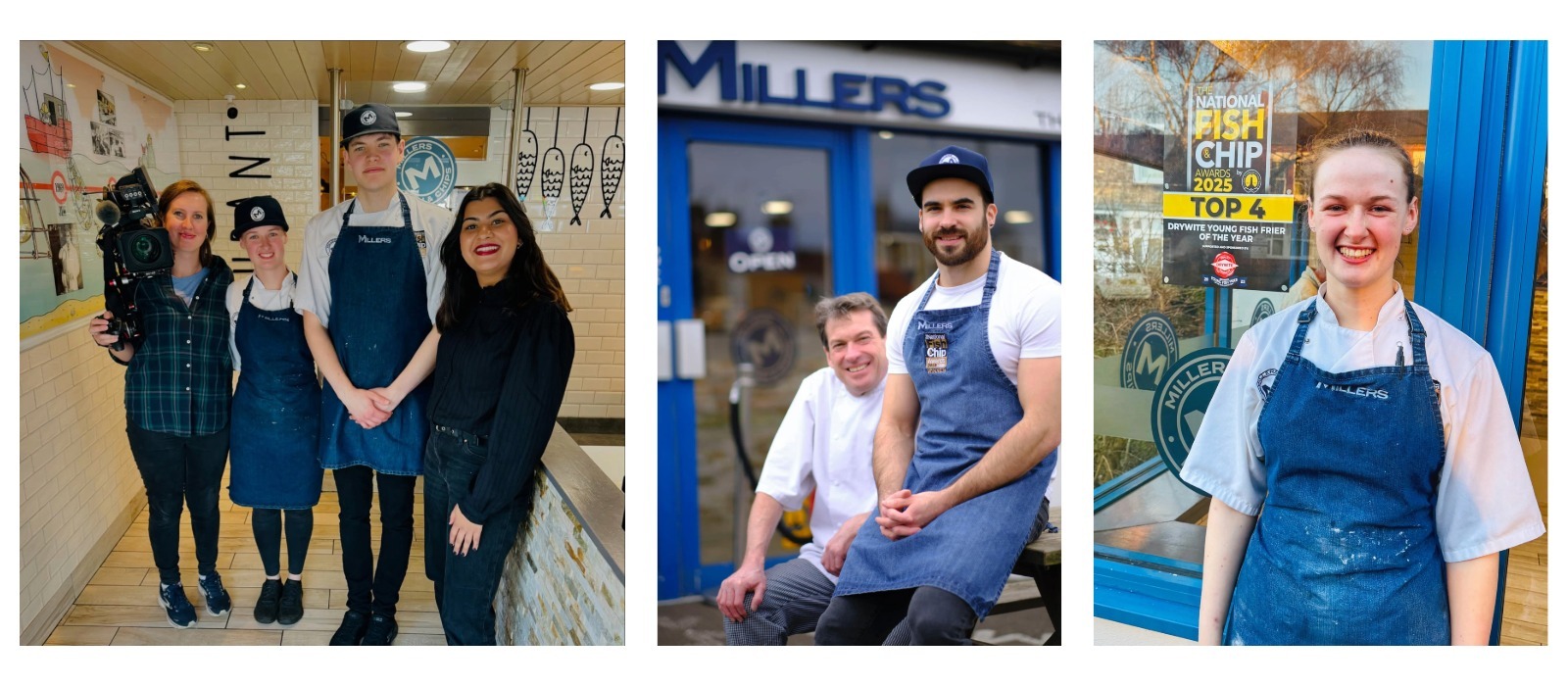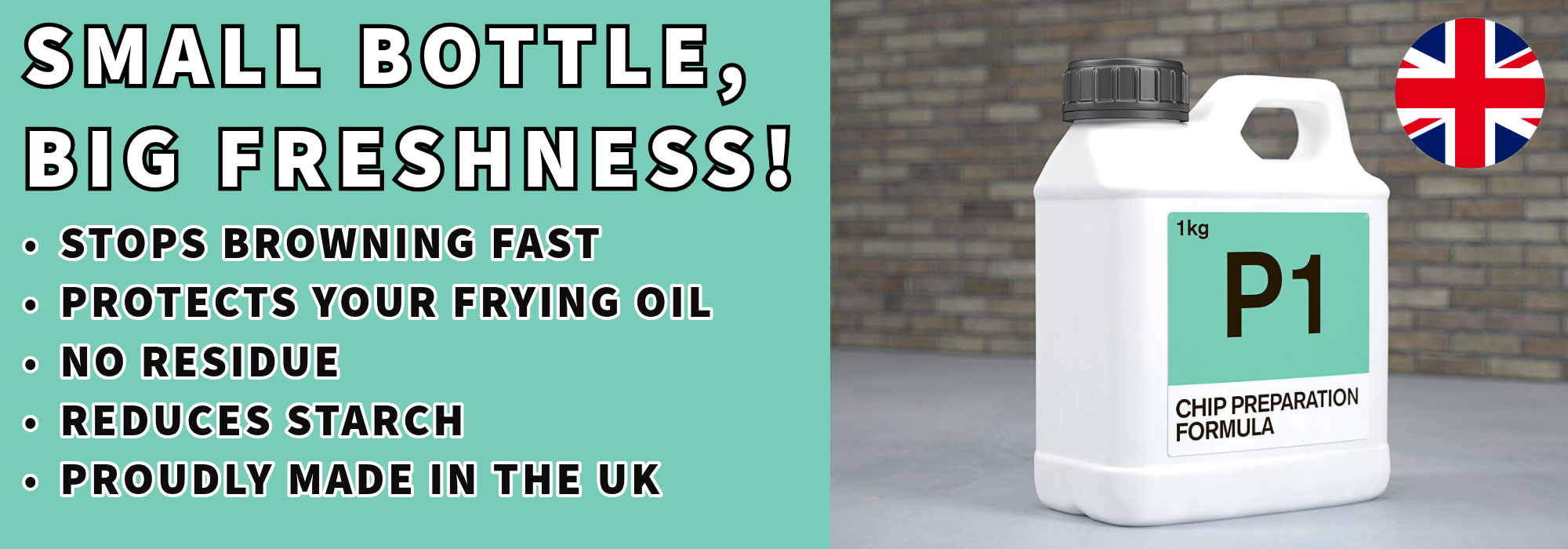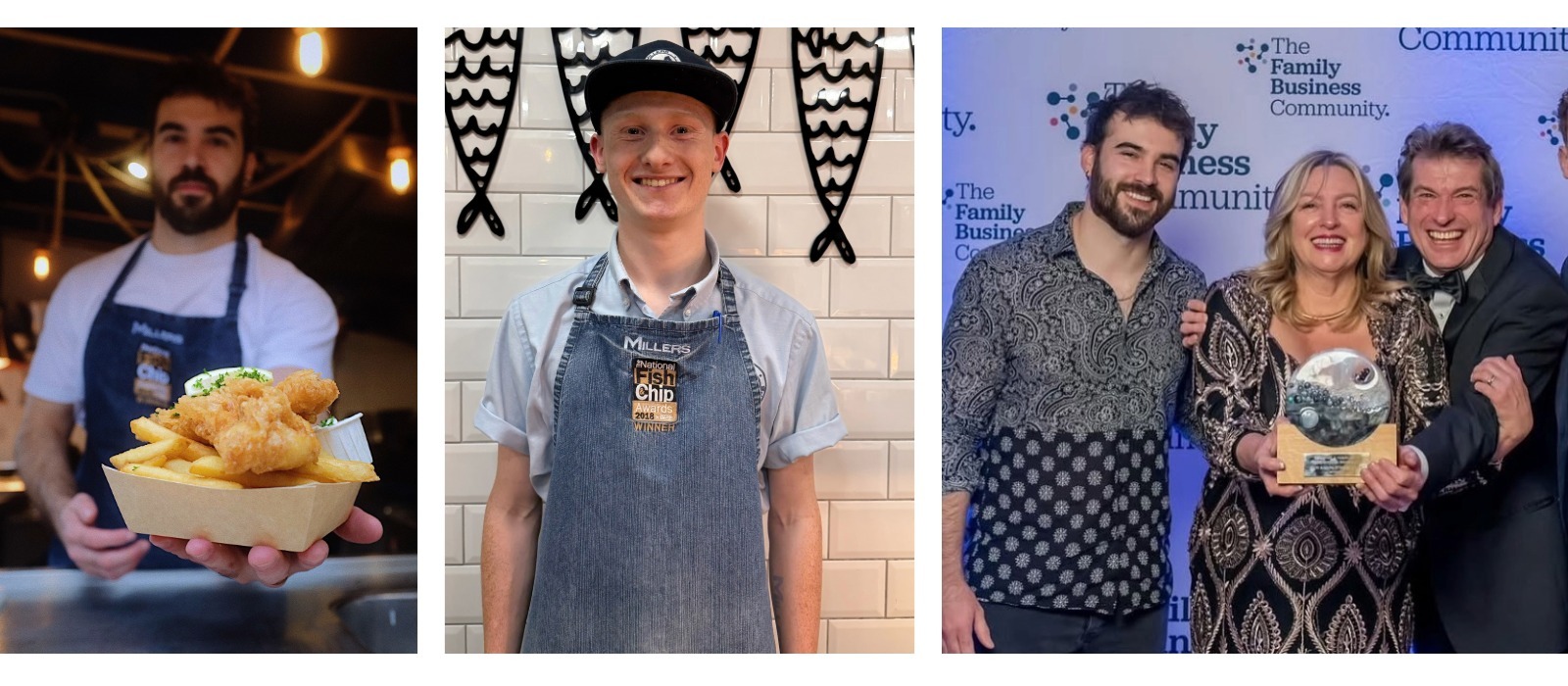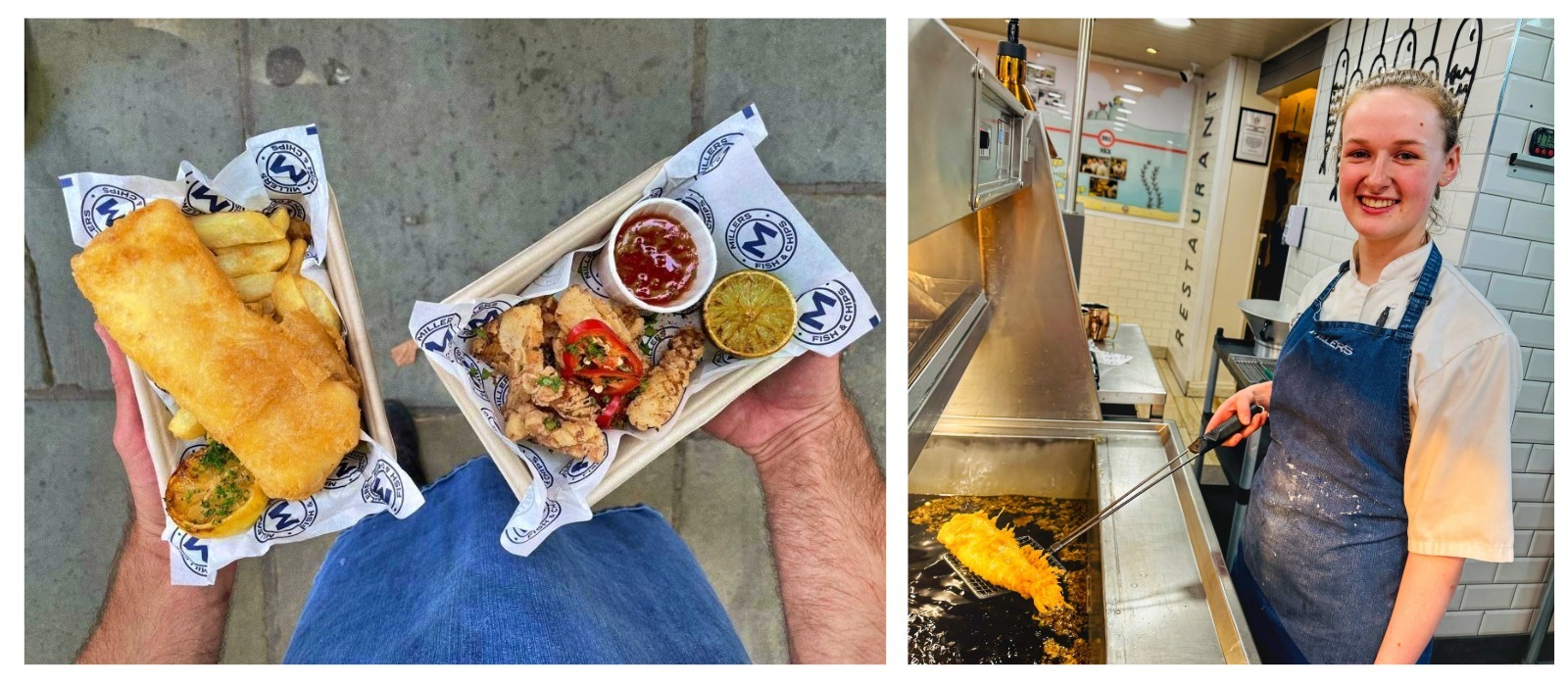How Apprenticeships Transformed My Career in the Fish & Chip Industry
Posted by Abby Barker on 1st Sep 2025 Reading Time:
Welcome to this edition of Trade Talks, where we bring you insights straight from the friers of the Fish & Chip industry. In this column, Abby Barker, Frier at Millers Fish & Chips in Haxby, shares her perspective on the trade.
When people talk about apprenticeships, they often call them the “alternative route” — something you take if you don’t want to go to college. But for me, an apprenticeship wasn’t a second choice. It was the decision that changed my career.
I completed my Level 3 Senior Production Chef apprenticeship while working at Millers, and it gave me more than just a qualification. It gave me the confidence, knowledge, and leadership skills I needed to step up — and the belief that I could do more in this industry than I ever thought possible.
Learning While Doing
I didn’t want to go back to college. What worked for me was being able to learn on the job while developing new skills I could immediately put into practice. The apprenticeship gave me structure — tasks with deadlines, regular check-ins with my tutor — but also flexibility. When I was competing in the Drywite Young Fish Frier competition, I could plan around it, get ahead on assignments, and still keep progressing.
That blend of accountability and freedom kept me motivated. And unlike traditional study, I wasn’t just learning from a textbook. I was living it, every shift.
The Night It Clicked
There’s one night that really showed me the value of my apprenticeship. We were short-staffed — the only other frier had to go home sick. Orders were still flying in, customers were queuing, and the pressure was on.
In that moment, I had to adapt fast. I repositioned team members, using the front of house and back of house to help, and kept the fryers running until reinforcements arrived. Without the leadership training from my apprenticeship, I’d have panicked. Instead, I trusted what I’d learnt — that leadership is about adapting to the situation, not sticking to a script.
It was exhausting, but we got through it. And more than that, the team saw me step up. That built trust — something no course alone can teach you.
More Than Just Cooking
A lot of people think a chef apprenticeship is just about cooking. It isn’t. Mine covered legal compliance, food safety, nutrition, costing, governance, advertising, and even how demographics affect what you put on the menu.
At Millers, this meant I could start thinking like a manager. I learnt how to plan specials based on the season, keep stock levels tight to cut waste, and price dishes so they actually made money.
I wasn’t just running a team any more — I was helping run a business.
Why Fish & Chip Shops Should Back Apprenticeships
This is where I think the industry needs to open its eyes. Apprenticeships don’t just help employees — they help businesses.
For shops, supporting apprenticeships means you get better-trained, more confident staff who are invested in your business. It can be the deciding factor between someone seeing the job as “just a stopgap” and someone choosing to build a career with you. And in an industry that constantly worries about staff shortages, that matters.
For young people, apprenticeships are the foundation. You learn food hygiene and safety — skills you’ll use every day — but also pick up knowledge you’d never normally get in a fish and chip shop. Things like nutrition, costing, advertising, and leadership. You might not think you’ll use them straight away, but they’ll make you stronger in the job you’re doing now and prepare you for bigger roles later.
I’ve already had colleagues ask me about apprenticeships, and I’ve told them the same thing: if you get the chance, do it. It’s not just about the certificate at the end — it’s about the confidence and opportunities that come with it.
Passing It On
What I’ve really enjoyed is being able to pass on what I’ve learnt. Whether it’s teaching someone a new skill, helping them see a shift differently, or just giving them the confidence to believe in themselves — that’s been the most rewarding part. Watching people grow and knowing I played a part in that is something I’m proud of.
And it’s only pushed me further. Finishing Level 3 gave me the belief to go after Level 4. Every step is another chance to build myself up, and to bring others with me.
The Bigger Question
So here’s what I’d ask anyone reading this in our industry: why are apprenticeships still underestimated? Why do we treat them like a back-up plan, when they’re one of the most effective ways to develop staff, improve retention, and build stronger businesses?
My apprenticeship wasn’t just training — it was transformation. It took me from frier to manager, gave me the tools to lead with confidence, and made me believe in a long-term career in fish and chips.
And if more shops supported apprenticeships, and more young people took them up, I think we’d see a stronger, more sustainable future for this industry we all care about.

